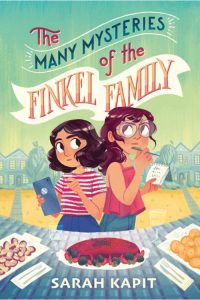 Welcome to the Pitch Wars Workshops with some of our amazing past and 2021 mentors. From a lottery drawing, we selected writers to receive a query and first page critique from one of our mentors. We’ll be posting some of the critiques leading up to the Pitch Wars submission window. Our hope is that these samples will help you in shining up your query and first page.
Welcome to the Pitch Wars Workshops with some of our amazing past and 2021 mentors. From a lottery drawing, we selected writers to receive a query and first page critique from one of our mentors. We’ll be posting some of the critiques leading up to the Pitch Wars submission window. Our hope is that these samples will help you in shining up your query and first page.
We appreciate our mentors for generously dedicating their time to do the critiques. If you have something encouraging to add, feel free to comment below. Please keep all comments tasteful. Our comments are set to moderate, and we will delete any inappropriate or hurtful ones before approving them.
Next up we have:
Pitch Wars Mentor Sarah Kapit

Sarah Kapit is the author of Get a Grip, Vivy Cohen! and The Many Mysteries of the Finkel Family, both published by Penguin Random House. Get a Grip, Vivy Cohen! was named a 2020 Scheider Family Honor title by the American Library Services Association. The book has been named to several “best of” lists, including the Chicago Public Library Best Books of 2020, and was recently featured on The New York Times’ The Book Review podcast. Sarah’s work has received starred reviews in Kirkus, School/Library Journal, and ALA Booklist. She was a Pitch Wars 2017 mentee. 2021 is her third time co-mentoring for Pitch Wars. When she’s not reading and writing, she can be found knitting, watching baseball, and spoiling her goofy orange cat. Sarah lives in Bellevue, Washington.
Sarah’s recent release, The Many Mysteries of the Finkel Family

Fans of the Penderwicks and the Vanderbeekers, meet the Finkel family in this middle grade novel about two autistic sisters, their detective agency, and life’s most consequential mysteries.
Amazon B&N Indigo IndieBound Book Depository
Sarah’s critique
Category: Middle Grade, Contemporary Fantasy
Query:
I am seeking representation for my 65,000 word, middle grade, contemporary fantasy, XXXXXXXXXX.
Twelve-year-old Maggie O’Connor, who thrives on creepy and weird (up to a point), [I don’t think you need this parenthetical phrase. Show us that she thrives on creepy and weird through the query] is used to fabricating daring adventures, much to the dismay of her parents and frequently hysterical sister, Grace. But when a mysterious doll appears at the foot of her bed in the middle of the night, Maggie is unnerved, and a lot spooked. The elegant, Victorian doll starts following Maggie to school, and whispering in her ear.
Desperate to get away from the doll, Maggie jumps at the chance to visit great Aunt Henrietta. [I don’t think you needed to say that Maggie was spooked. If she’s desperate to get away from the doll, we can understand that she’s scared.] But Aunt Henrietta, who’s a seventy-five-year-old spitfire, [Again, I think the parenthetical phrase disrupts the flow] is acting strange. A celebrated antique dealer, Aunt Henrietta now hides behind locked doors in the desolate town of Paradise. The day she arrives, Maggie discovers a trunk full of eerily similar dolls in Aunt Henrietta’s basement—magical dolls that are not dolls, but trapped orphans, victims of a spell by a time traveling, soul stealer, Luther Grey, who uses children’s souls to stay alive. [Oooh! This is so exciting. Is there a way to condense the first few paragraphs s that we get to this curdling premise sooner?]
The dolls, who are orphans from 19th century London, are being hidden by Aunt Henrietta. [This sentence is in passive voice. Consider rewriting to active voice.] But now, she needs Maggie’s help if the orphans are to be real again. [Wait, they want to bring the orphans back to life? Why not send them back to their own time?] Guided by a letter linking Maggie to the dolls’ salvation, a letter that tells her she must destroy Luther Grey in order for the spell to be broken [She receives a letter saying she must destroy Luther Grey? This seems notable enough for its own sentence.], the two sisters [Maggie’s sister is back? When did she come in? Was she always with Aunt H? The last time you mentioned Grace was back in the first paragraph] track the evil Luther to New York City where they encounter their famous actress grandmother—cold hearted Lavinia LaRouge (Henrietta’s estranged sister), who looks eerily young, and possibly mixed up with Luther Grey, who, is seems, is not the only one who wants to live forever. [You’re bringing in too many named characters for a query and I’m starting to get confused. In general, try to keep it to the protagonist, villain, and one or two sidekicks.]
As the sisters make their way through abandoned hotels, haunted doll shops, underground tunnels, and the desolate Orphan’s Island [This is a few too many settings. Can we leave out the tunnels?] where Luther Grey holes up, Maggie pieces together a family mystery—one that involves Maggie’s own shocking magical origins and her possible connection to Luther.
But it is when Luther casts an irreversible spell on Grace, and steals Maggie’s soul, that she must summon her own magical power in order to free Grace, and hopefully herself.
[Wow! This is such a fun, creepy premise. I am so into the creepy Victorian dolls coming to life thanks to orphans and time travel. So I would definitely be interested in reading more based on the query. Great job!
However, you have SO much going on in this query that I’m not sure if it’s really serving you as well as it could. In general, queries should conclude at the book’s midpoint, or perhaps even at the one-third point. Obviously I can’t say where that is without seeing your entire manuscript, but it does feel like you have an awful lot going on here, even for a manuscript that’s on the longer end of MG. I recommend consolidating and simplifying the plot summary. Here are some tips for doing this:
-Cut descriptions of characters. We should be able to see that Maggie is a daredevil and Grace is a scaredy-cat through your summary of the plot. You don’t need to tell us.
-Get to the main premise—there are all these orphan dolls running around!—by the end of the first paragraph.
-Instead of including every point in their adventure, focus on a few details that are particularly memorable and evocative.
-Give major points space to breathe. Don’t pack too much information into one sentence, or even one paragraph.
Additionally, I’d like to see a little more linkage of the plot description with Maggie’s journey as a character. Your book has a lot of action going on, which is fantastic, but I’d like to know a little more about how it all connects to Maggie. Is this a story about two very different sisters learning how to work together, for example? Even if the focus is on the external plot, I’d like to know a little more about what the stakes are for Maggie. Why is it important for her to embark on this adventure? Why does she continue? Saving one’s sibling is a big motivation, but it would be even better to know more about their relationship so that we know why Maggie HAS to save Grace.]
First page:
“Maggie O’Connor! Get down from there this minute! You’ll break your neck!” [Normally the conventional wisdom is to not start with dialogue, but I think this works because it’s interesting and powerfully introduces the character.]
Maggie teetered on the edge of the roof pretending not to hear, even though her mother’s voice could have shattered glass. [You’re definitely giving us a powerful picture of this character already.] She had fantasized about this moment ever since yesterday’s phone call. I’ll be there, the low, silky voice had murmured as Maggie listened on the other end. It would be a dazzling spectacle, with just the right amount of fanfare—perfect for her special guest. [Okay, so we have a mysterious guest coming! While this is definitely intriguing, I’d like to know a little more. Knowing who this guest is would give more context to the scene. Why is Maggie so excited to see this person? Why does she want to impress them? I know this may seem like giving away the surprise, but being more clear about the stakes can create more tension, not less. If we the reader understand why the situation matters to the character, we’re more invested in watching the events unfold. Trying to figure it out is a little confusing and takes us out of the story. Also, after having read your query I think that knowing more about the mysterious visitor will hint that this is a fantasy. It’s usually best to show that there are fantastical elements as early as you can.]
Maggie looked down at her feet and wished she had worn something besides flipflops for the occasion. Broken toes from a jump this high were practically a given, but it was summer. Maggie wouldn’t have to wear real shoes for months. She hated shoes, anyway.
“Maggie—I mean it! Get down before I call the fire department.”
Maggie giggled. The fire department. If only. Fire trucks rescued cats in trees. Not girls dangling off roofs scaring their mothers half to death. She wished for once her mother wouldn’t make such a ruckus about personal safety. It spoiled everything. Maggie was convinced that the personal safety gene was like a computer virus—a glitch embedded in the adult human hard drive, designed to wipe out joyful impulses in twelve-year-olds. When the time came, hopefully with the entire family watching in horror, she would step onto the tree branch, and leap!
[You’re definitely showing us a unique and memorable character, which is so important for middle grade. Great job! However, I still find myself wanting more context. Obviously Maggie is a daredevil with little regard to personal safety, but you seem to be hinting that there’s some bigger reason for her risk-taking. Jumping off the roof in your flip-flops to impress someone is actually very different than doing it for kicks—although, of course, multiple motivations can be at work. I think that if we have more grounding in the situation, we can relate to the character even more and root for her.
I really like that you’ve begun with an interesting, evocative scene. When you do this kind of opening, however, you have to do extra work to show the reader why it matters.]
1 Comment
Kadie Peters · September 3, 2021 at 12:53 pm
Great critique. Dolls scare me to death. Hehe. So this is really intriguing. I will definitely read this. I love your writing voice. Great pointing out the things that you had. I learn a lot from this one.
Comments are closed.